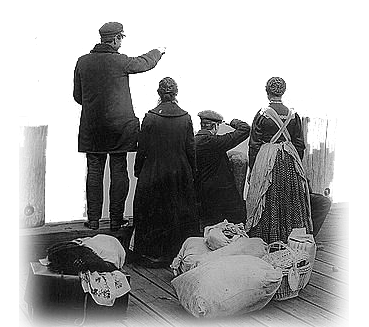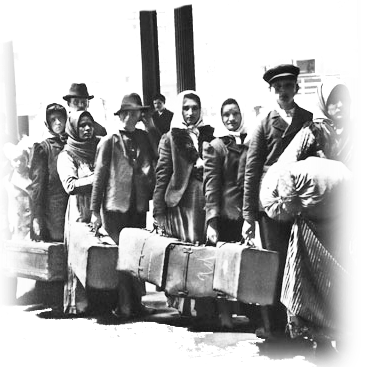 The FAIDRA project addressed the transnational mobility priority through a cross border mobility strategy, which brought together artists and other cultural operators from 6 different countries. So, a performance was co-produced and several other events were implemented; The transnational team implementing the FAIDRA project was dedicated to develop joint artistic activities and products spanning six different European Countries, three from the old EU member states and three from new member states, while the partnership covered a wide range of different cultures and national particularities, including north, south and central European locations. An inter cultural exchange had happened through research, development of a joint theatre performance; and dividing responsibilities for staging this performance among the partners, so that not only actors from all the participating countries took part in the performance, but also other theatre professionals (stage designers, soundtrack and IT experts, costume designers etc). Besides the joint production of the FAIDRA play, transnational exchanges were realized through a touring exhibition of documentary material explaining further and illustrating with visual material the scenario of the play; and international seminars for the discussion and exchange of experiences on the innovative aspects of documentary theatre and the contribution of the project to it.
The FAIDRA project addressed the transnational mobility priority through a cross border mobility strategy, which brought together artists and other cultural operators from 6 different countries. So, a performance was co-produced and several other events were implemented; The transnational team implementing the FAIDRA project was dedicated to develop joint artistic activities and products spanning six different European Countries, three from the old EU member states and three from new member states, while the partnership covered a wide range of different cultures and national particularities, including north, south and central European locations. An inter cultural exchange had happened through research, development of a joint theatre performance; and dividing responsibilities for staging this performance among the partners, so that not only actors from all the participating countries took part in the performance, but also other theatre professionals (stage designers, soundtrack and IT experts, costume designers etc). Besides the joint production of the FAIDRA play, transnational exchanges were realized through a touring exhibition of documentary material explaining further and illustrating with visual material the scenario of the play; and international seminars for the discussion and exchange of experiences on the innovative aspects of documentary theatre and the contribution of the project to it.
Audience development
 The project met this priority by building the audience dimension in every activity and by encouraging audience participation and interaction during the project activities. The project employed an audience development strategy and a plan to implement this strategy, which assigned specific roles and tasks to the partners, targeting specific audience “segments”. Such segments, which formed the target groups of the project, included the immigrant and ethnic communities; young actors and other related
The project met this priority by building the audience dimension in every activity and by encouraging audience participation and interaction during the project activities. The project employed an audience development strategy and a plan to implement this strategy, which assigned specific roles and tasks to the partners, targeting specific audience “segments”. Such segments, which formed the target groups of the project, included the immigrant and ethnic communities; young actors and other related
professionals (e.g. musicians, stage designers, media or multimedia operators etc), including students; and young people at school, of secondary school age, with the aim to socialise them to culture and the arts as vehicles for the understanding of society and the global challenges. The general public was accessed in parallel, aiming to establish real time interaction with the audiences during the performances of the play; and during the visits of young and old at the touring exhibitions foreseen.
Training and education
 The project supported this priority by including in the work plan education and training activities, addressing different target groups, with different objectives. In particular, the project supported 6 training seminars, which were delivered in 6 different EU counties, addressing young actors and other related theatre professionals, as well as media and multimedia experts and teachers, on the genre of documentary theatre, offering hands on experiences through rehearsing parts of the FAIDRA play and encouragement to study more deeply the historical background of modern European history, as a source of inspiration for creating innovative theatrical forms. These seminars enabled the participants to gain new skills enrich their professional life and enhance their chances on the labour market. Moreover, the project leader CENTREDU is a theatre training organization, which intends to use in the medium and long term the training material to be developed by the project in its regular actors’ course, offering its students an additional feature devoted to the documentary theatre. The international “touring” exhibition also supported this priority, by stimulating informal learning activities specially targeting young people and schools, offering at the same time rich education material to school teachers to exploit, amplifying the theme of modern European history and its unwritten facets. The international exhibition offered in addition a location based -game interpreting the exhibits, which motivated the young visitors and engaged them in the theme of the exhibition as well in the unfolding of the FAIDRA play and documentary theatre more generally-as a medium to understand recent history in Europe.
The project supported this priority by including in the work plan education and training activities, addressing different target groups, with different objectives. In particular, the project supported 6 training seminars, which were delivered in 6 different EU counties, addressing young actors and other related theatre professionals, as well as media and multimedia experts and teachers, on the genre of documentary theatre, offering hands on experiences through rehearsing parts of the FAIDRA play and encouragement to study more deeply the historical background of modern European history, as a source of inspiration for creating innovative theatrical forms. These seminars enabled the participants to gain new skills enrich their professional life and enhance their chances on the labour market. Moreover, the project leader CENTREDU is a theatre training organization, which intends to use in the medium and long term the training material to be developed by the project in its regular actors’ course, offering its students an additional feature devoted to the documentary theatre. The international “touring” exhibition also supported this priority, by stimulating informal learning activities specially targeting young people and schools, offering at the same time rich education material to school teachers to exploit, amplifying the theme of modern European history and its unwritten facets. The international exhibition offered in addition a location based -game interpreting the exhibits, which motivated the young visitors and engaged them in the theme of the exhibition as well in the unfolding of the FAIDRA play and documentary theatre more generally-as a medium to understand recent history in Europe.
Transnational mobility
 The FAIDRA project addressed the transnational mobility priority through a cross border mobility strategy, which brought together artists and other cultural operators from 6 different countries. The transnational team implementing the FAIDRA project was dedicated to developing joint artistic activities and products spanning six different European Countries, three from the old EU member states and three from new member states, while the partnership covered a wide range of different cultures and national particularities, including north, south and central European locations. An inter cultural exchange happened through research, development of a joint theatre performance; and dividing responsibilities for staging this performance among the partners, so that not only actors form all the participating countries took part in the performance, but also other theatre professionals (stage designers, soundtrack and IT experts, costume designers etc). Besides the joint production of the FAIDRA play, transnational exchanges were realized through a touring exhibition of documentary material explaining further and illustrating with visual material the scenario of the play; and international seminars for the discussion and exchange of experiences on the innovative aspects of documentary theatre and the contribution of the project to it.
The FAIDRA project addressed the transnational mobility priority through a cross border mobility strategy, which brought together artists and other cultural operators from 6 different countries. The transnational team implementing the FAIDRA project was dedicated to developing joint artistic activities and products spanning six different European Countries, three from the old EU member states and three from new member states, while the partnership covered a wide range of different cultures and national particularities, including north, south and central European locations. An inter cultural exchange happened through research, development of a joint theatre performance; and dividing responsibilities for staging this performance among the partners, so that not only actors form all the participating countries took part in the performance, but also other theatre professionals (stage designers, soundtrack and IT experts, costume designers etc). Besides the joint production of the FAIDRA play, transnational exchanges were realized through a touring exhibition of documentary material explaining further and illustrating with visual material the scenario of the play; and international seminars for the discussion and exchange of experiences on the innovative aspects of documentary theatre and the contribution of the project to it.
